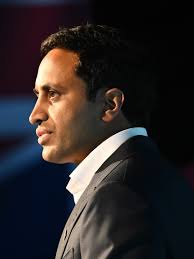Zia Yusuf: The Tech Millionaire Transforming British Politics Through Reform UK Leadership

The Rise of a Political Newcomer
Muhammad Ziauddin Yusuf, born in 1986 in Bellshill, North Lanarkshire, Scotland, is a multi-millionaire British businessman and political campaigner. His parents, who migrated from Sri Lanka to the UK in the 1980s, both worked for the NHS – his father as a doctor and his mother as a nurse.
From Tech Success to Political Leadership
Yusuf’s business acumen was demonstrated when he co-founded Velocity Black, a luxury concierge app catering to high-net-worth individuals. The venture proved highly successful, with the company being sold in 2023 for £233 million, earning Yusuf an estimated £31 million.
His entry into politics has been marked by significant impact. He has become a major financial supporter of Reform UK, contributing £200,000 during the 2024 general election campaign. Under his leadership, the party has seen remarkable growth, with membership surging to nearly 200,000, surpassing the Conservative Party. By February 2025, the party topped YouGov polls with 24% support, ahead of both Labour and the Conservatives.
Recent Political Developments
Yusuf served as Chairman of Reform UK from July 2024 until a brief resignation in June 2025. However, he quickly reversed his resignation following discussions with party leader Nigel Farage, acknowledging it had been a hasty decision. In his current role, he has taken on expanded responsibilities including policy development, fundraising, media strategy, and leading the party’s Department of Government Efficiency.
Challenges and Controversies
Yusuf’s leadership style has not been without controversy. His top-down approach has led to internal conflicts, notably the suspension of MP Rupert Lowe in March 2025 following allegations of verbal threats. This incident sparked significant debate within the party, with some supporters, including former deputy leader Ben Habib, accusing Yusuf of undermining the party’s grassroots ethos.
While Yusuf’s ideas have found resonance with voters disillusioned by traditional parties, they have also sparked backlash. Critics, including some Reform supporters, have questioned both his alignment with Farage’s divisive rhetoric and his elite background.









